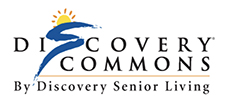ADL stands for Activities of Daily Living. Think of an ADL checklist as a tool. It helps to make sure that basic needs are met. Eating, bathing, dressing, and moving around are examples. This checklist is key in caring for older people. It shows what help your loved ones may need.
Understanding ADLs: Defining Activities of Daily Living and Their Importance
Activities of Daily Living (ADLs) are routine tasks we perform daily. They include self-care activities like bathing, dressing, eating, and toileting. For old individuals, ADLs gauge self-care skills. Understanding these essential tasks helps family members determine the level of assistance their loved ones need.
ADLs have high importance in a retirement environment. Trouble performing these tasks indicates that an individual may need help. Monitoring ADLs allows retirement community teams to provide necessary support to residents. It identifies those who need help with day-to-day tasks.
Components of an ADL Checklist: Identifying Essential Daily Tasks
An ADL checklist covers six main tasks. These are bathing, dressing, eating, transferring (moving to and from beds or chairs), toileting, and maintaining continence. Each task is evaluated on a scale to document the person’s ability. A low score suggests a higher need for support.
However, an ADL checklist is not constant. It evolves as an individual’s needs change. Regularly updating the checklist ensures each resident receives the right support. It guarantees that loved ones are not lacking help or getting too much.
Assessing Independence: How the ADL Checklist Evaluates Self-Care Capabilities
An ADL checklist evaluates a person’s independence. If a person can perform most activities without help, they have a high level of independence. A low score suggests they need support for daily tasks.
Retirement community teams use ADL checklists to determine how much help each resident needs. It helps them understand each person’s capabilities and limitations. Thus, they can ensure residents get the right support while promoting autonomy.
Supporting Care Planning: Utilizing ADL Assessments to Tailor Support Needs
ADL assessments guide retirement communities in planning care for each resident. It shapes the types of support provided. A person with high independence might need little daily assistance, while others may need help with every task.
Using ADL assessments ensures each resident receives personalized care. It respects their abilities and supports their weaknesses, leading to a comfortable and dignified life. For family members, it provides peace of mind, knowing their loved ones receive the right care at the retirement community.
Our Senior Programs: More Than Basic Care
Incorporating the ADL checklist into every aspect of daily life, we at Discovery Commons Virginia Beach tailor our approach to meet the individual needs of our residents, ensuring they can enjoy a level of independence that’s right for them, with dignity and respect at the forefront. Beyond just providing care, our senior living programs are enriched with activities designed to foster joy and a sense of community among residents. From fitness to music, art, and more, we make certain that everyone, regardless of their needs, has the opportunity to participate and thrive in our vibrant community. Let us help you or your loved one find the perfect blend of support, engagement, and independence at Discovery Commons Virginia Beach.






